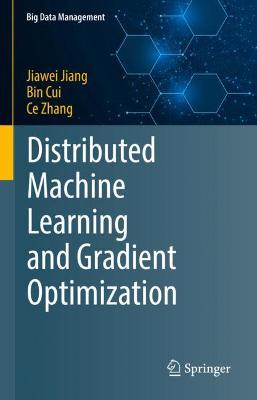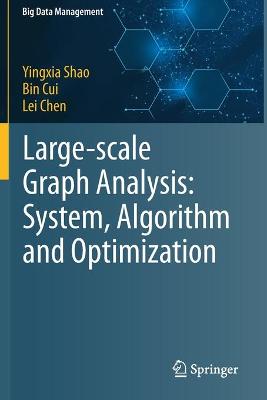Big Data Management
2 total works
Distributed Machine Learning and Gradient Optimization
by Jiawei Jiang, Bin Cui, and Ce Zhang
This book presents the state of the art in distributed machine learning algorithms that are based on gradient optimization methods. In the big data era, large-scale datasets pose enormous challenges for the existing machine learning systems. As such, implementing machine learning algorithms in a distributed environment has become a key technology, and recent research has shown gradient-based iterative optimization to be an effective solution. Focusing on methods that can speed up large-scale gradient optimization through both algorithm optimizations and careful system implementations, the book introduces three essential techniques in designing a gradient optimization algorithm to train a distributed machine learning model: parallel strategy, data compression and synchronization protocol.
Written in a tutorial style, it covers a range of topics, from fundamental knowledge to a number of carefully designed algorithms and systems of distributed machine learning. It will appeal to a broad audience in the field of machine learning, artificial intelligence, big data and database management.
Large-scale Graph Analysis: System, Algorithm and Optimization
by Yingxia Shao, Bin Cui, and Lei Chen
This book introduces readers to a workload-aware methodology for large-scale graph algorithm optimization in graph-computing systems, and proposes several optimization techniques that can enable these systems to handle advanced graph algorithms efficiently. More concretely, it proposes a workload-aware cost model to guide the development of high-performance algorithms. On the basis of the cost model, the book subsequently presents a system-level optimization resulting in a partition-aware graph-computing engine, PAGE. In addition, it presents three efficient and scalable advanced graph algorithms – the subgraph enumeration, cohesive subgraph detection, and graph extraction algorithms.
This book offers a valuable reference guide for junior researchers, covering the latest advances in large-scale graph analysis; and for senior researchers, sharing state-of-the-art solutions based on advanced graph algorithms. In addition, all readers will find a workload-aware methodology for designing efficient large-scale graph algorithms.

